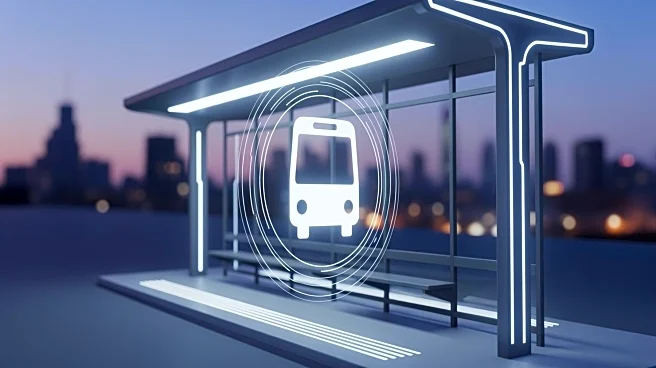What's Happening?
Hertfordshire County Council is set to participate in a government pilot scheme aimed at improving local bus services through a franchising model. The initiative, supported by a £360,000 grant from the
Department for Transport, seeks to enhance punctuality and maintain essential routes. The franchising model allows councils to determine bus routes, timetables, and fares, with operators bidding to run services for a fixed fee. This approach is expected to provide more reliable services, particularly benefiting older residents and those in rural areas. The pilot will initially focus on north and east Hertfordshire and Stevenage, with the council's small 'on demand' service, HertsLynx, also being considered.
Why It's Important?
The pilot scheme represents a significant shift in how local bus services are managed, potentially leading to more efficient and user-focused public transportation. By granting councils greater control, the initiative could ensure that bus services better meet the needs of local communities, particularly in areas where commercial operators may not find it profitable to run. This could lead to increased public transport usage, reduced traffic congestion, and lower emissions. The success of this pilot could influence national policy, encouraging more councils to adopt similar models, thereby transforming public transport across the UK.
What's Next?
As the pilot progresses, stakeholders will closely monitor its impact on service reliability and passenger satisfaction. The results could prompt further legislative support for franchising models, potentially leading to broader implementation across the country. Local authorities, transport operators, and community groups will likely engage in discussions to refine and expand the model based on initial outcomes. The pilot's success could also attract additional funding and support for public transport innovations.









